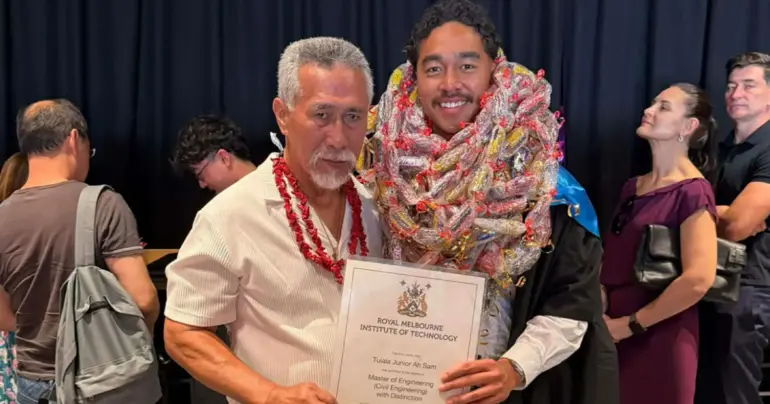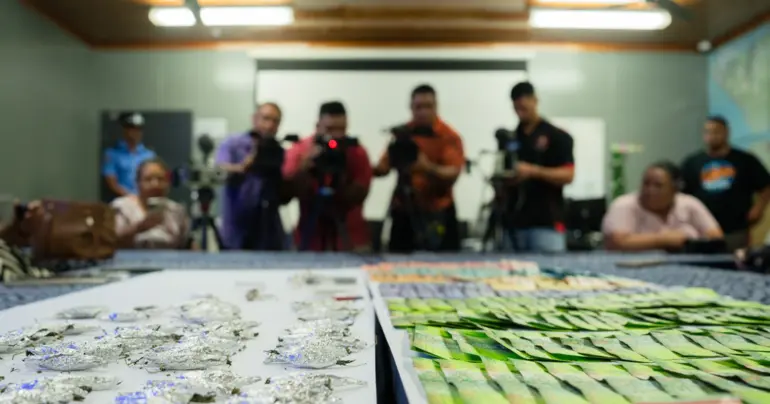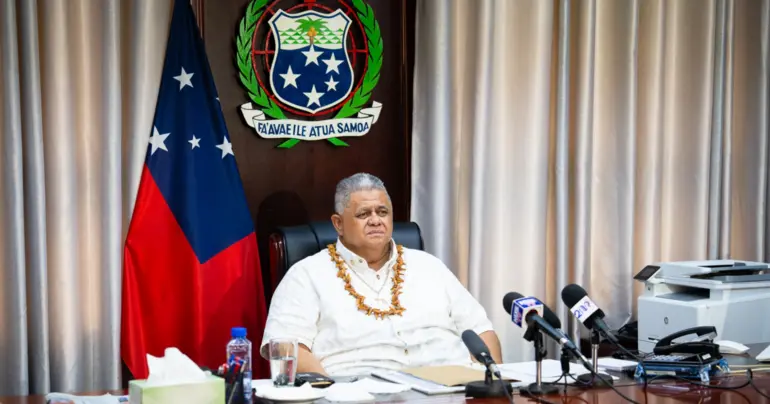Samoa's ongoing restrictions disproportionate - Professor
 By Sapeer Mayron
•
23 September 2020, 11:30PM
By Sapeer Mayron
•
23 September 2020, 11:30PM
Samoa’s ongoing State of Emergency (S.O.E.) and restrictions on gatherings and trade are disproportionate to the threat of the coronavirus pandemic in the country.
That is the opinion of Law Professor from the University of Otago, Professor Andrew Geddis, who said if the same situation was happening in New Zealand, people would not be prepared to support it.
Samoa initially implemented a severe lockdown, closing its borders to even its own citizens, closing schools and most non-essential public services for a spell, and restricting shopping hours across most of the commerce sector.
Many other countries followed in the same vein, especially those like Samoa with low or no testing capacity to know for sure if COVID-19 had made its way onshore.
But six months later, with still no confirmed cases in the community or caught at the quarantine sites from citizens repatriated from New Zealand or other parts of the Pacific, many of those early restrictions remain in place.
“It does seem disproportionate, certainly looking through New Zealand eyes,” Professor Geddis said.
“One assumes it will be open ended, because if you have six months why wouldn’t you have literally years of this?”
In New Zealand, a law was passed in order to carry out the essential work the COVID-19 response demanded, called the COVID-19 Public Health Response Act.
Professor Geddis said that proportionality has been baked into the Act so that if anyone felt the Government had gone too far with its restrictions it could take the matter to court.
“If the Government was to keep strict controls on public life even after COVID seems to have been eliminated or greatly reduced it would be possible to go to court and say the Government is overreacting here,” he explained.
“The court would have to do its own analysis over whether the remaining threat of COVID actually justifies the measures the government is keeping in place.”
So far that has not happened. One legal challenge has been brought against the most severe lockdown, Alert Level Four, but it was more about whether the existing laws had been used correctly than whether the lockdown measures themselves were appropriate.
Broadly the Government has been well supported in how it has reacted to the pandemic, Professor Geddis said. Support for the leadership during the first wave of the virus was over 80 per cent, while the response to the second wave Auckland is currently facing has had 70 per cent approval rates.
The professor suggests the support is largely premised on trust, that while the Government is acting quickly to impose restrictions on movement to stamp out the virus, it will also lift them as soon as it is safe to do so.
“It sounds like a very different response then the one in Samoa, which seems to be while the threat is out there in the world we are going to keep restrictions in place just in case it sneaks in.
“I don’t think New Zealanders would be prepared to go along with such an approach […] I think, certainly in a New Zealand context, if we had six months of zero COVID, if we had never had any cases of COVID at all and the Government was still telling us here are quite severe restrictions on how day to day life can go on, that would be considered to be a grossly disproportionate response.”
Professor Geddis said he recognises why Samoa, and many other countries around it, has responded to the threat of the pandemic the way it has.
With the memory of the measles epidemic looming large and the shadow of the 1918 influenza immediately behind it, Samoa is acutely aware of what it stands to lose if it lets the virus in.
As well as a proactive response to the pandemic, New Zealand’s government has applied a handful of other measures which has boosted its public support.
One of those was the then-leader of the Opposition, Simon Bridges, heading a COVID-19 Response Committee to oversee the official Government response and hold it accountable.
This was a powerful tool to let New Zealander’s see the whole of Government, not just the ruling coalition, were in the fight against the pandemic together.
Another has been to regularly release cabinet meetings, discussion papers and other policy documents around the COVID-19 response in what have become known as ‘document dumps.’
These have been used by journalists and policy analysts to take a closer look at the response and either pick holes in what has, or has not been done, and hold some of those decisions up to the light.
“What I think that response does do is allows for a rebuttal of any claims that things are being done in secret, that there is stuff being hidden or the like,” Professor Geddis said.
“Because the Government has been proactive in releasing information it has allowed journalists to dig through and find some flaws and problems, which can then be fixed which is a good thing in itself, but it also means that for anyone who says the Government has an agenda or is hiding what it’s up to, you can just point to all the documents and say here is what is actually happening.”
But one troubling consequence of both the document releases and the response committee is a backlash against anyone criticising the Government response.
Professor Geddis suggested that leading the committee may have led to the former National leader’s demise, as he was seen as “treasonous” for stress testing the Government’s decisions.
“Whenever he did try to raise concerns, which is his job, he is not meant to be a cheerleader for the Government, people felt he was being disloyal, in a sense.
“Unfortunately when the opposition did try to do its job a lot of people interpreted that the wrong way, as though you were somehow being treasonous to the country.”
Tags
 By Sapeer Mayron
•
23 September 2020, 11:30PM
By Sapeer Mayron
•
23 September 2020, 11:30PM











